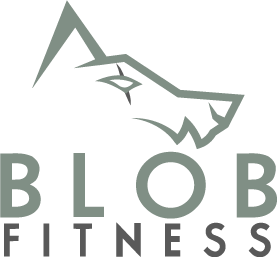
Let's be honest, diving into the world of fitness can feel like navigating a maze blindfolded.
The key? Setting realistic goals.
Not just any goals, but ones that fit into your life and motivate you every step of the way.
In this post, I'm going to walk you through setting achievable fitness goals, understanding what makes a goal doable, celebrating small steps, appreciating the little victories, learning from the bumps along the road, and keeping track of all your awesome progress.
How to Set Goals
Alright, goal setting 101 – it's more than just saying, "I want to get fit."
That's like saying you want to travel without picking a destination.
For example, decide that you'll run a 5K in under 30 minutes by the end of the summer. It's all about making your goal SMART – Specific, Measurable, Achievable, Relevant, and Time-bound.
Think of it as creating a roadmap for your fitness journey. Where are you now? Where do you want to be? How will you know when you get there?
Summary: Make your fitness goals specific, measurable, achievable, relevant, and time-bound. It’s like creating a roadmap for your journey!
Characteristics of Achievable Goals
Let's talk about setting goals that you can reach.
Your goals should match your time availability and physical capabilities.
Let's go over both time availability and physical capabilities with powerlifting.
Time Availability
Let's say you are training 6 days a week but doing so is difficult due to your work schedule or other life circumstances.
You should realize this is not sustainable. Modify your program for fewer days a week and realize that hitting your goals may take a bit longer.
Physical Capabilities
Let's say your goal is to reach a 600lbs squat.
But let's also assume your circumstances are:
- You are just beginning powerlifting
- You weigh around 140lbs
- Your current 1RM is 185 lbs.
Assuming the points above, achieving a 600lb squat would be rather a difficult task to achieve.
A more achievable goal can be something like 225lb for 3x5 or a 1RM of 285-315 lbs.
Summary: Achievable goals should fit into your lifestyle and fit your time availability and physical capabilities.
Importance of Incremental Progress
Little wins in your fitness journey are important to keep you motivated and keep going.
The goals can be super small.
For example, if you are doing a hypertrophy program, make it a goal for the next session to either increase the rep by a couple of pounds, do another set, or do more reps.
Another example, let's say you are someone who is running, try running just 1 minute longer. Maybe try taking fewer breaks or controlling your breathing a little better.
These aren't large goals, but these small goals will continue to build you up and help you achieve your goals in the long run.
It's about building up slowly but surely. These small steps not only build your physical strength but also boost your confidence.
Summary: Small steps lead to big changes.
Embracing Failures as Learning Opportunities
Guess what? It’s fine to slip up or miss a goal.
Everyone goes through it.
The real magic lies in what you learn from these slip-ups.
Maybe that super-ambitious goal was a bit too much, too soon.
No problem.
Take that insight, tweak your plan, and set a new, more realistic goal. Each 'failure' is just another step towards understanding yourself better and setting better goals for the future.
Summary: Embrace your slip-ups. They’re not failures but lessons that help you grow.
Tracking Goals
Let's talk about keeping tabs on your progress.
Are you a tech whiz? Maybe an Excel spreadsheet will be your best friend.
More of a pen-and-paper person? A notepad or journal works wonders.
There are also tons of apps out there that can track your workouts, remind you to hydrate, and even cheer you on. Find what clicks for you and stick with it!
Summary: Whether it’s a high-tech app or an old-school journal, find your favorite way to track progress and make it part of your routine.
Final Thoughts
Having goals is important to give yourself a map of where you want to be. Being over-ambitious can set you up for failure, however, within failure there are lessons.
The only time you truly fail is when you didn't learn anything in the process and you give up completely.
Keep working towards your goals and enjoy the journey that comes with it.
Get a Free Guide!
Similar Posts
Discover effective strategies to overcome gym reluctance and how to get motivation to go to the gym even when you don't feel like It.
Explore effective strategies for goal adjustment and setting new goals mid-year. Embrace change, track progress, and maintain motivation for personal growth.
Learn the secret of how to use accountability to achieve your goals. This guide will help you achieve your goals faster and make you a better person.



